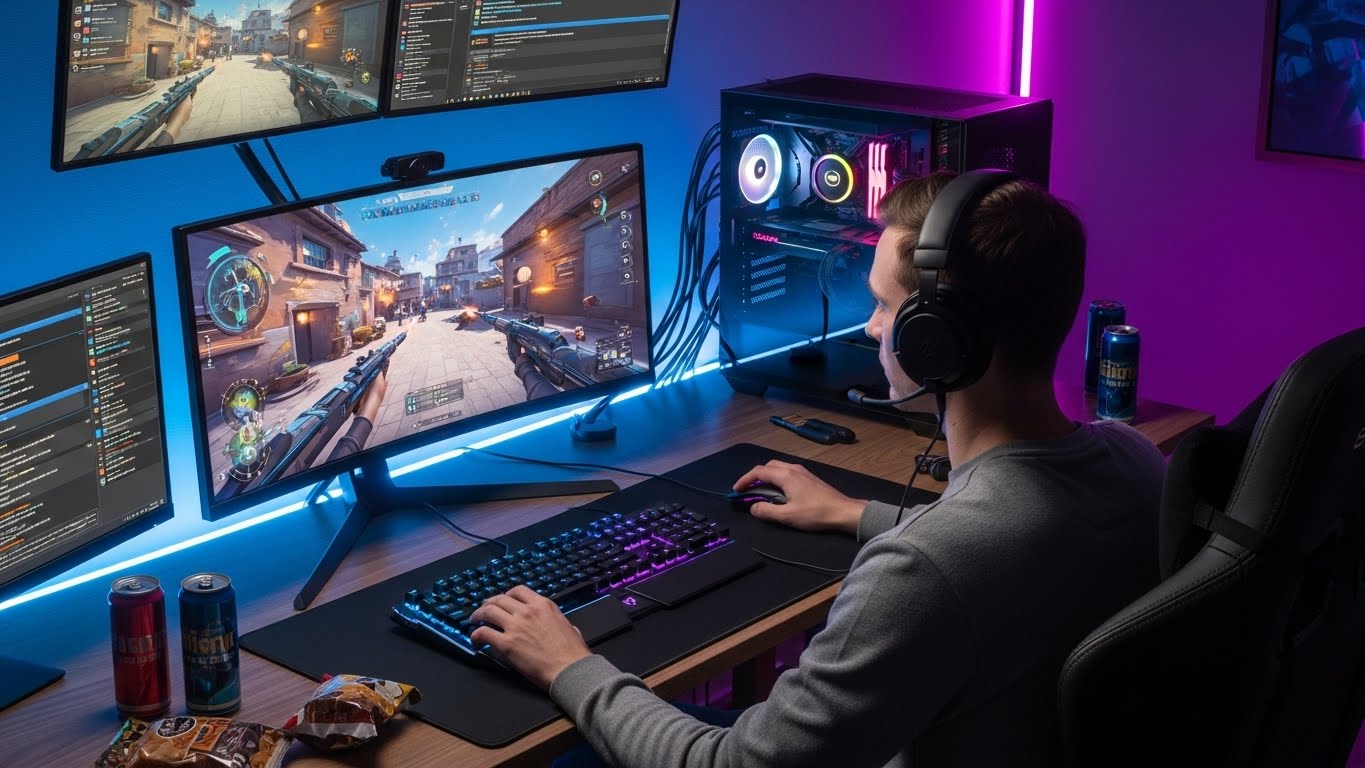Introduction: Gaming as a Cultural Phenomenon
Gaming has grown from a simple pastime into a major form of entertainment and creativity. It engages millions worldwide, offering immersive experiences that go beyond traditional hobbies. Today, gaming is not just about playing—it is about storytelling, problem-solving, social connection, and even professional competition.
The Evolution of Gaming
Gaming started with simple pixelated screens and basic controls, but technology has transformed it into highly interactive and realistic experiences. Consoles, PCs, and mobile devices have made gaming more accessible than ever. From retro classics to modern 3D worlds, the journey of gaming reflects technological innovation and cultural impact.
Skill Development Through Gaming
Games are more than entertainment—they develop important skills. Strategy and puzzle games enhance problem-solving and critical thinking. Multiplayer games teach communication, teamwork, and leadership. Fast-paced action games improve reflexes and decision-making. For professional players, rigorous practice cultivates focus, discipline, and perseverance.
Social Connections in Gaming
Gaming has a strong social dimension. Online multiplayer games allow players to collaborate, compete, and form communities. Friends and strangers alike can connect over shared goals, forming bonds that extend beyond the virtual world. Streaming and online discussions also create spaces for fans to share experiences, tips, and achievements.
Gaming and Mental Wellness
Gaming offers mental and emotional benefits when enjoyed responsibly. It can provide stress relief, relaxation, and a creative outlet. Story-driven games stimulate imagination and empathy, while competitive games encourage resilience and strategic thinking. Moderate gaming can enhance cognitive abilities and support mental well-being.
Competitive Gaming: The Rise of eSports
The world of competitive gaming, known as eSports, has gained global recognition. Professional players compete in tournaments with high stakes, demonstrating skill, teamwork, and strategy. eSports has grown into a professional career path, showing that gaming requires dedication, practice, and discipline similar to traditional sports.
Challenges in the Gaming World
Despite its benefits, gaming faces challenges. Excessive play, addiction, and exposure to toxic behavior are ongoing concerns. Parents, players, and communities must encourage balanced gaming habits and foster safe, positive environments to ensure that gaming remains enjoyable and healthy.
The Future of Gaming
The future of gaming is exciting and limitless. Emerging technologies such as virtual reality, augmented reality, cloud gaming, and artificial intelligence are creating more immersive and inclusive experiences. Gaming will continue to evolve as a medium for entertainment, education, and global social interaction.
Conclusion: Gaming as a Journey
Gaming is more than just entertainment—it is an adventure, a challenge, and a community. It builds skills, connects people, and inspires creativity. As the industry grows and technology advances, gaming will remain a central part of modern culture, shaping how we play, learn, and connect in the digital age.

